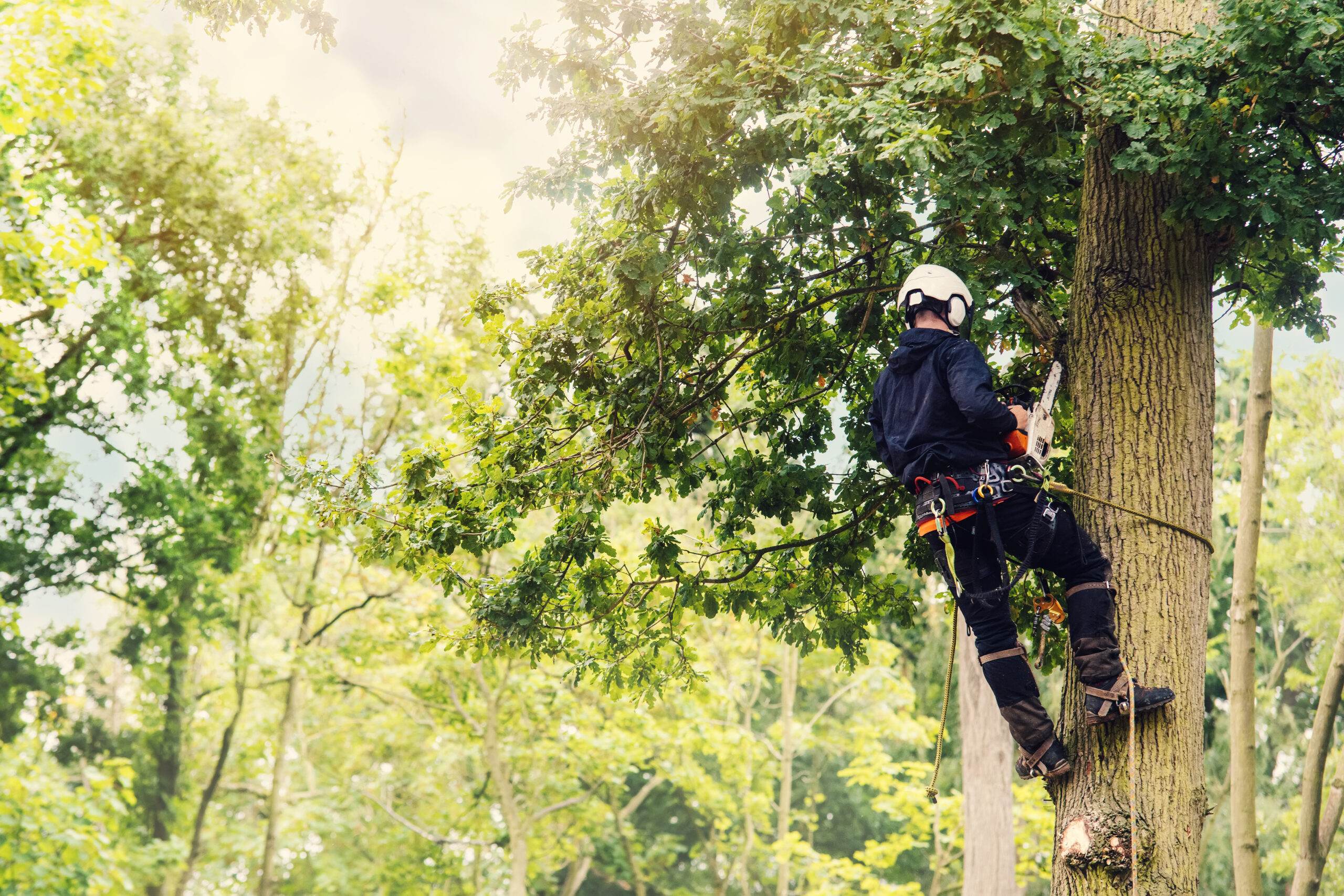Tree care experts can help improve tree health
Tree care in Round Rock and Austin TX can help improve tree health and development. When it comes to maintaining the health and vitality of trees, soil care is a critical component that is often overlooked. The soil in which a tree grows serves as the foundation for its overall health, influencing everything from nutrient uptake to water availability. Understanding the importance of soil care and implementing best practices can significantly impact the growth, resilience, and longevity of your trees.
Understanding Soil Composition
Soil is a complex mixture of minerals, organic matter, water, and air. Its composition can vary greatly depending on the location and environmental conditions. The main components of soil include:
- Minerals: These include sand, silt, and clay. The proportions of these particles determine the soil’s texture and influence its drainage and nutrient-holding capacity.
- Organic Matter: Decomposed plant and animal materials contribute to soil fertility by providing essential nutrients and improving soil structure.
- Water: Soil moisture is crucial for tree health, as it facilitates the uptake of nutrients and maintains cellular functions.
- Air: Good soil structure allows for adequate air spaces, which are necessary for root respiration and microbial activity.
Soil pH and Nutrient Availability
The pH level of soil affects the availability of nutrients to trees. Most trees thrive in slightly acidic to neutral soil (pH 6.0-7.0). If the soil is too acidic or too alkaline, certain nutrients become less available, leading to deficiencies that can hinder tree growth. Regular soil testing can help determine the pH level and indicate whether amendments, such as lime or sulfur, are needed to adjust the pH.
The Role of Microorganisms
Healthy soil is teeming with microorganisms, including bacteria, fungi, and earthworms. These organisms play a vital role in decomposing organic matter, recycling nutrients, and improving soil structure. Mycorrhizal fungi, in particular, form symbiotic relationships with tree roots, extending their reach and enhancing nutrient and water absorption. Encouraging a diverse and active soil microbial community is essential for optimal tree health.
Compaction and Its Consequences
Soil compaction occurs when the soil particles are pressed together, reducing pore space and limiting root growth. Compacted soil restricts the movement of air, water, and nutrients, leading to poor tree health. Common causes of soil compaction include heavy foot traffic, machinery use, and construction activities. To prevent and alleviate compaction, it is important to avoid excessive traffic around trees, use mulch to protect the soil, and consider aeration techniques to improve soil structure.
Water Management
Proper water management is crucial for maintaining healthy soil conditions. Both overwatering and underwatering can have detrimental effects on trees. Overwatering can lead to waterlogged soil, suffocating roots and promoting the growth of harmful pathogens. Underwatering, on the other hand, can cause drought stress, reducing the tree’s ability to absorb nutrients and compromising its overall health. Monitoring soil moisture levels and adjusting irrigation practices accordingly can help ensure optimal water availability for trees.
Practical Soil Care Practices
Now that we have a foundational understanding of soil and its importance for tree health, let’s explore practical soil care practices that can help maintain and improve the condition of the soil around your trees.
Mulching
Mulching is one of the most effective ways to care for the soil around trees. By applying a layer of organic mulch, such as wood chips, leaves, or compost, you can achieve several benefits:
- Moisture Retention: Mulch helps retain soil moisture by reducing evaporation, which is especially important during dry periods.
- Temperature Regulation: Mulch acts as an insulating layer, keeping the soil cooler in summer and warmer in winter.
- Weed Suppression: A thick layer of mulch can suppress the growth of weeds, reducing competition for water and nutrients.
- Organic Matter Addition: As the mulch decomposes, it adds organic matter to the soil, improving its structure and fertility.
To mulch effectively, apply a 2-4 inch layer around the base of the tree, extending out to the drip line. Avoid piling mulch directly against the trunk, as this can promote rot and attract pests.
Soil Testing and Amendments
Regular soil testing is an essential practice for maintaining tree health. Soil tests can reveal nutrient deficiencies, pH imbalances, and other factors that may be affecting your trees. Based on the test results, you can apply appropriate soil amendments to correct any issues. Common amendments include:
- Lime: Used to raise soil pH (reduce acidity).
- Sulfur: Used to lower soil pH (increase acidity).
- Compost: Adds organic matter and improves soil structure.
- Fertilizers: Provide essential nutrients that may be lacking in the soil.
Avoiding Soil Disturbance
Minimizing soil disturbance is crucial for protecting tree roots and maintaining soil health. Construction activities, landscaping projects, and even routine maintenance can disrupt the soil and damage tree roots. When planning any activities around trees, take measures to protect the root zone:
- Establish Root Protection Zones: Mark off areas around trees where heavy machinery and foot traffic are prohibited.
- Use Protective Matting: Lay down plywood or other protective materials to distribute weight and minimize soil compaction.
- Plan Ahead: Coordinate construction and landscaping activities to avoid unnecessary soil disturbance.
Enhancing Soil Fertility
In addition to organic mulch and compost, there are other practices you can adopt to enhance soil fertility and support tree health:
- Cover Crops: Planting cover crops, such as clover or ryegrass, can improve soil structure, add organic matter, and fix nitrogen in the soil.
- Compost Tea: Applying compost tea, a liquid extract of compost, can introduce beneficial microorganisms and nutrients to the soil.
- Mycorrhizal Inoculants: These products contain beneficial fungi that can establish symbiotic relationships with tree roots, improving nutrient and water uptake.
Monitoring and Maintenance
Ongoing monitoring and maintenance are essential for ensuring the long-term health of your trees and soil. Regularly inspect the soil and tree roots for signs of compaction, nutrient deficiencies, and other issues. Adjust your soil care practices as needed to address any problems and promote optimal growing conditions.
Proper soil care is fundamental to the health and vitality of your trees. By understanding the components of soil, recognizing the importance of pH and microorganisms, and implementing practical soil care practices, you can create an environment that supports robust tree growth and resilience. Investing time and effort into soil care not only benefits your trees but also contributes to the overall health and beauty of your landscape.
Hire the best tree care service in Round Rock and Austin TX
Leaf Tree Services is your locally owned professional tree service with certified arborists for residential and commercial customers in Round Rock, Austin, and surrounding Central Texas areas. You can trust your trees to us. Contact us today to schedule a consultation, at 512-670-6766.


